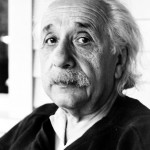by Kara-Leah Grant
I need to tell you a story, about a woman coming home after spending eight years overseas.
This woman had left seeking fame & fortune, certain that out there in the world lay her destiny.
She came home broken, tormented by her mind, which had betrayed her and cost her the world. Everything she valued – her fiance, her friends, the town she’d made her home in, her sense of Self… all of it had been torn away.
She came home with nothing, except a diagnosis of bi-polar, her swirling thoughts and feelings of failure.
And Yoga.
Yes, there was one thing this woman brought home with her that couldn’t be taken away, no matter what happened to her. In the Acute Psych Ward, after she was committed because cops found her delusional and half-naked running down the back roads of Pemberton, she found her way outside on to the grass and began to practice sun salutations.
Somehow she knew that no matter how broken she was, and no matter how bad things seemed to be, that if she just practiced yoga, everything would be ok.
Nothing the doctors offered her – medication, group therapy and more medication was going to make her well. She knew that. Oh, they might help in the short-term, providing a crutch to get her back on her feet again. But medication couldn’t heal her. Labelling her mentally ill couldn’t heal her. Even therapy couldn’t heal her. Only she could do it – with the right tools.
And so it was. As day after day, week after week, month after month and year after year, I turned up to the mat and I practiced. I practiced through resistance, and I practiced through tears. I practiced even though I had no teacher and I practiced even though I didn’t know what I was doing.
Now when I see people suffering mental illness, I know that yoga could help them too.
And this is why I’m so proud of Annie Chapman, as she prepares to walk the Te Araroa Trail – the length of the North Island – from Cape Reinga to Wellington.
She’s on a Hikoi (march) to raise awareness for the need to bring about change in the mental health system.
Over the past two and a half years, in the role of a support worker for a Mental Health Trust Annie has witnessed the following outcomes of a medical-model approach to mental illness:
- life-long patterns of dependence and disempowerment
- life-threatening side-effects of many psychiatric medications
- limited effectiveness and withdrawal problems
- lack of accurate information re the side-effects for consumers of psychiatric medication
She’s also concerned about continued use of compulsory electro-convulsive therapy and increased prescribing of psychiatric drugs to children.
I share her concerns.
Medication is not the answer for healing mental illness – it’s a tool to help us find the stability required to take the long-term actions that can heal our minds.
Post-psychosis, I was prescribed two drugs – an anti-psychotic and a mood stabilizer. I took both of them for at least four months while I got my life grounded and stable. When I felt ready, in discussion with friends and family, I began to reduce my dose.
During this time, I observed myself, and asked my friends and family to observe me, to ensure I wasn’t falling into mania or depression again. Two months later I was drug free, and have been drug-free (and symptom-free) ever since (eight years almost).
Not everyone who experiences mental illness will be able to be drug-free. That’s not what this is about. What my experience showed me, and what Annie’s Hikoi is about it, is expanding the way we treat mental illness so that people realise they have choices.
Annie’s research suggests that better long-term outcomes can be achieved by offering people a wider range of positive, empowering alternatives, with or without short-term or lower dose medication as part of treatment. For example:
- Effective personal advocacy
- Access to psychotherapeutic help
- Tailored advice regarding diet and exercise
- Facilitated peer groups
- Complementary therapies and practices
- Advice and support to safely reduce or come off medications
One reason why we don’t have this kind of approach in our health system right now is cost. Many of these more progressive ways of dealing with mental health cost more up-front. However the cost long-term is reduced, as the cost of illness is reduced because people are recovering from mental health issues, rather than just medicating the symptoms.
Yoga and meditation are a big part of the complementary therapies and practices that work for mental health.
I was fortunate in that I had enough knowledge, and was independent and strong enough to believe I could heal my mental illness. That it wasn’t who I was. Most people don’t feel this way, or know this, unless other people tell them it is so.
It’s bloody scary when your mind doesn’t work right anymore. It’s the most vulnerable a person can be. If you can’t trust the way your mind functions, what can you trust in life? Plus the drugs you’re given as an immediate fix suck the life out of you. I was a walking corpse when I came back from Canada, a shell of a woman.
And this is what Annie’s been witnessing over the last two years:
For the past two and a half years I have been employed part-time as a mental health support worker in transition accommodation in Porirua. I was initially shocked and increasingly angered and saddened by the high doses of medication given to the clients I work with.
What I saw is a sort of a catch 22. People are given high doses of anti-psychotic drugs which in the short term appear to work by knocking the worst of the distressing symptoms on the head, but at high dosages they also take away everything else as well!! As one person ruefully put it they took away my disease but they ruined my life.
It would be hard to imagine a system better designed to magnify damaging feelings of isolation and disempowerment than the system we have at present. Isolation and disempowerment are clearly not helpful for someone experiencing a mental health crisis.
At no stage of the process are clients offered any alternative. Drugs are the only treatment on offer.
The reliance on psychiatric drugs alone is hard to understand given the impressive record of various centres and programmes overseas.
In the U.S. Soteria houses (these were developed by a U.S. Psychiatrist Lauren Mosher) where drugs were either avoided or minimally used; The Freedom Center in USA, where yoga and acupuncture along with Hearing Voices groups are offered; In Finland for many years now, open dialogue therapy with either minimal or no medication has yielded remarkable results with psychosis. In many third world countries where drugs are used much less frequently in the treatment of psychosis, the recovery rates are much better than in the West.
Help Annie achieve her aim of Healthy Choices in Mental Health. Here’s how:
- Help with food and accommodation for the 5 month walk. If you can give a one-off payment or a weekly automatic payment for the duration of the walk (e.g. $10 per week) please e-mail Annie for the bank account details.
- Transport between the Te Araroa trail and population centres as I pass through your district, for meeting and media activity
- To organize meetings in your town, to raise awareness for this campaign.
- A bed for the night when I am in your area
- To walk with me for whichever parts of the walk you can
Please e-mail Annie if you are able to help with any of the above. Find the Hikio for Healthy Choices in Mental Health facebook page here.


Thanks Kara-Leah for the support you have lent to the Hikoi by publishing this. Also, personally, thank you for your courageous sharing of this wonderful story of the great gift that lies at the heart of Yoga, even in the healing of really extreme states of distress and mental unwellness. Indeed, if every human being deeply understood to trust our minds less and this great force of life that Yoga re-connects us with more, such healing of planet and humanity is possible!!
Hey Annie,
My pleasure. I’m with you completely on this one! Yoga is a great force for healing, as is any mindfulness practice that helps us to discern the true nature of Mind, and Self.
Good luck!
KL
Namaste KL, you write with such eloquence and honesty. Namaste.
Thanks Maddy. Ironic almost eh? Such clarity out of such madness 🙂
Well done Kara-Leah and Annie! Best wishes for promoting change in mental health treatment, many people will benefit.
Gerald
Auckland
Thanks Gerald, much appreciated.
KL